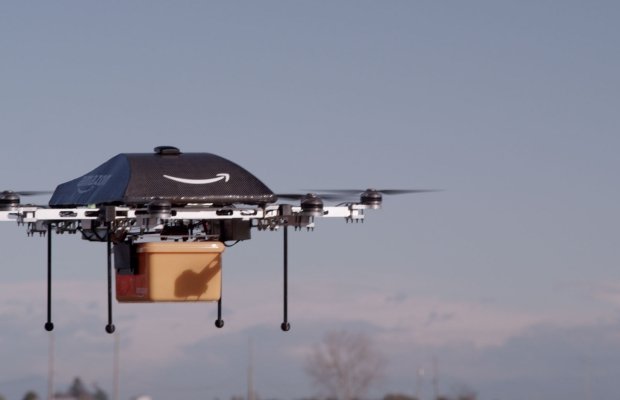Over 100 Amazon Prime Air staff let go as drone deliveries fail to get off the ground

More than 100 Amazon Prime Air employees have lost their jobs as the project has cut back parts of its UK operations, according to reports.
Amazon Prime Air, which launched in 2016, is e-commerce giant Amazon’s delivery division for drones.
However, a number of employees on the UK team told Wired that the drone project was “collapsing inwards” and was essentially “organised chaos”.
Workers detailed how some staff had to train their replacements in Costa Rica, while others reported that their managers knew little about the projects they were working on.
Five years after its creation, the project’s entire UK data analysis team has been made redundant.
But some employees have been relocated to other parts of the business.
An Amazon spokesperson told City A.M.: “We recently made organizational changes in our Prime Air business and were able to find positions for affected employees in other areas where we were hiring.
“Prime Air continues to have employees in the UK and will keep growing its presence in the region.”
The spokesperson added that the company remained “committed” to its development centre in Cambridge, where there are still engineers, research scientists, and technology experts.
Amazon spearheaded the concept of drone deliveries, which pushed UK regulators to fast-track approvals for drone testing.
But Jeff Bezos’ retail heavyweight was eventually beaten to it by Alphabet-owned Wing and UPS for snagging US regulatory approval.
US operations appear to still be going ahead, likewise with its Israel operations, as Amazon Prime Air has posted some 87 jobs based in Seattle and Tel Aviv for its drone divisions.
Sources said their only contact with the company’s central office was a US executive who flew over every few months who bought the team pizza but failed to answer any key questions.
“The best living metaphor for it all is that you had some bloke on the other side of the planet telling you what to do and then just leaving,” one source claimed.
“When you have that little communication between people in an organisation I don’t know how you expect anything to get done.”